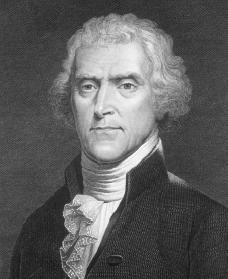Book Review: “Thomas Jefferson: The Art of Power”
It’s not often anymore that I have time for a full-length book, but I recently read Jon Meacham’s biography of Jefferson, “Thomas Jefferson: The Art of Power.” It took a few weeks taking it on long flights and reading before bed, but it’s very worth the time.
Meacham covers the entire arc of Jefferson’s life, giving plenty of space to his formative years in Virginia and looking at the influences that shaped him prior to obtaining high office.
By Meacham’s account, Jefferson seldom would be directly critical of others, even political opponents or enemies. His politeness and tact were the surface that people saw, while he worked quietly and diligently behind the scenes to consolidate alliances and test the waters to ensure that he seldom engaged in battles he could not win.
Meacham does not avoid the issue of slave ownership, treating it thoroughly, but noting the complexities of the time and Jefferson’s complicated relationships with his slaves. He finds some evidence that Jefferson supported abolition as a concept, but his assessment of the political situation was that it would be a lost cause to fight for publicly.
Libertarians have a soft spot for Jefferson, due to many of his writings and quotations having a strong libertarian bent, but the picture Meacham paints is of an idealist who was an absolute realist about policy and the exercise of governmental power. His ideas were lofty, but he also had skill as a political tactician in not seeking too much and knowing when to negotiate.
If you’re interested in the man behind the legend of a Founding Father, Jon Meacham’s “Thomas Jefferson: The Art of Power” is worth a read.
